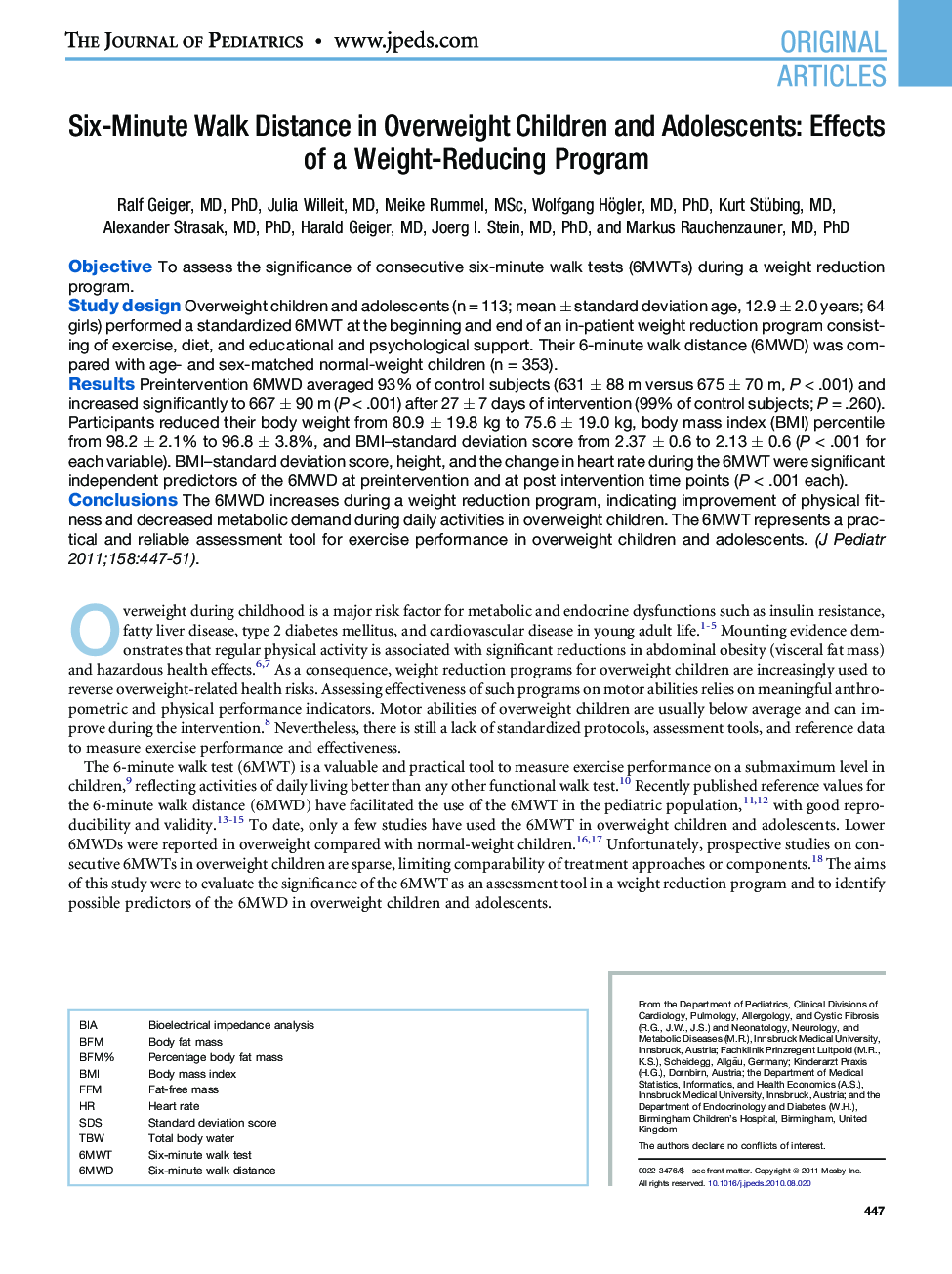| Article ID | Journal | Published Year | Pages | File Type |
|---|---|---|---|---|
| 4166226 | The Journal of Pediatrics | 2011 | 5 Pages |
ObjectiveTo assess the significance of consecutive six-minute walk tests (6MWTs) during a weight reduction program.Study designOverweight children and adolescents (n = 113; mean ± standard deviation age, 12.9 ± 2.0 years; 64 girls) performed a standardized 6MWT at the beginning and end of an in-patient weight reduction program consisting of exercise, diet, and educational and psychological support. Their 6-minute walk distance (6MWD) was compared with age- and sex-matched normal-weight children (n = 353).ResultsPreintervention 6MWD averaged 93% of control subjects (631 ± 88 m versus 675 ± 70 m, P < .001) and increased significantly to 667 ± 90 m (P < .001) after 27 ± 7 days of intervention (99% of control subjects; P = .260). Participants reduced their body weight from 80.9 ± 19.8 kg to 75.6 ± 19.0 kg, body mass index (BMI) percentile from 98.2 ± 2.1% to 96.8 ± 3.8%, and BMI–standard deviation score from 2.37 ± 0.6 to 2.13 ± 0.6 (P < .001 for each variable). BMI–standard deviation score, height, and the change in heart rate during the 6MWT were significant independent predictors of the 6MWD at preintervention and at post intervention time points (P < .001 each).ConclusionsThe 6MWD increases during a weight reduction program, indicating improvement of physical fitness and decreased metabolic demand during daily activities in overweight children. The 6MWT represents a practical and reliable assessment tool for exercise performance in overweight children and adolescents.
